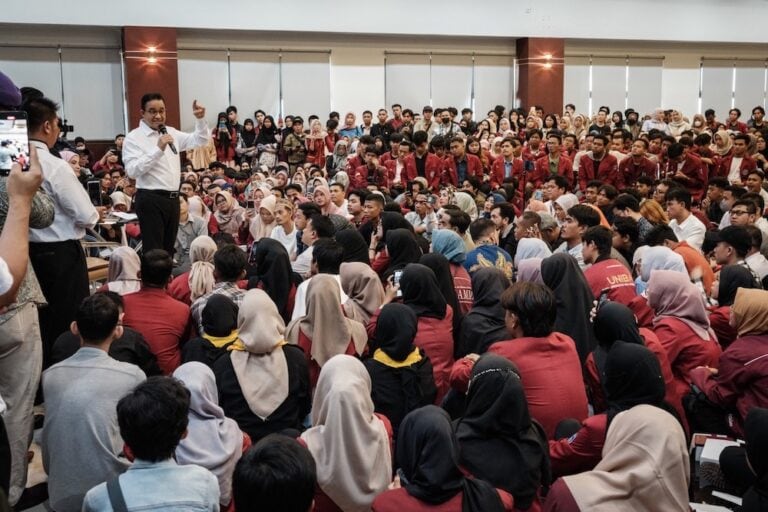(AJI/IFEX) – The following is a 9 April 2006 AJI statement: Use Existing Legal Channels to Respond to the Publication of the Indonesian Version of Playboy Magazine The Indonesian version of Playboy magazine, which was launched on Friday 7 April 2006 has raised controversy. In Bandung and Surakarta, a group of people swept through bookstores, […]
(AJI/IFEX) – The following is a 9 April 2006 AJI statement:
Use Existing Legal Channels to Respond to the Publication of the Indonesian Version of Playboy Magazine
The Indonesian version of Playboy magazine, which was launched on Friday 7 April 2006 has raised controversy. In Bandung and Surakarta, a group of people swept through bookstores, magazine agencies and hotels to search for the Indonesian version of Playboy magazine. In Jakarta, a group of people visited the editorial office of Playboy Indonesia magazine and demanded the halting of the magazine publication, which is regarded as spreading pornography. In other cities such as Yogyakarta and Makassar, a group of people threatened to stop the distribution of Playboy Indonesia by taking matters into their own hands.
The Alliance of Independent Journalists (AJI) Indonesia recalls that the presence of the magazine, which has been accused by some of containing pornography, is a consequence of freedom of information and press stipulated by the 1945 Constitution Chapter 28F, which says: “Everyone has the right to communicate and get information to develop his or her private and social environment, and has the right to find, obtain, possess, keep, manage and send information by using all kinds of existing channels.”
AJI also believes that in a democratic and pluralistic country like Indonesia, every individual and group must accept differences in opinions, respect press freedom, and not force their own beliefs on others, much less respond with acts of intimidation and threats of physical abuses, which violate the criminal code.
Therefore, the Alliance of Independent Journalists (AJI):
1. Expresses its regrets regarding the efforts of certain groups intimidating others and threatening physical abuse against Playboy Indonesia magazine. The power to take actions on the distribution of a media, which is considered to contain pornography, can only be taken by the police apparatus as the legal law enforcers. Moreover, accusations that the magazine spreads pornography must be proved through formal and material legal proceedings. Formally, Playboy Indonesia magazine is a legal publication and has received a permit from the government. Therefore, it must be proven in court that the publication of Playboy Indonesia really contains elements of pornography, before anyone can interfere with the its distribution.
2. Recalls that threats and acts of intimidation against a media office are a de-facto attack on press freedom and disrupt journalists’ work, which is protected by Press Law Number 40/1999 Chapter 4 article 1, stipulating that press freedom is guaranteed as the fundamental right of every citizen, article 2, which stipulates that the national press should not be subject to censorship, closures or prohibitions on what they can publish, and article 3, which stipulates that to guarantee press freedom, the national press has the right to seek, obtain and spread ideas and information.
3. Calls on those who oppose the presence of Playboy Indonesia magazine and other publications, which are considered to contain pornography, to make more civilised efforts to express their objections and to not prioritize violence and spread either threats or fear. Threats of violence and acts of intimidation will never solve any problems, while at the same time, they violate existing legal rules in the country.
4. Urges the management of Playboy Indonesia magazine and other similar publications to pay attention to their distribution methods, to ensure their publications are kept out of the reach of children.
5. Recalls that Press Law Number 49/1999 Chapter 17 guarantees the role of the community in activities to develop press freedom by article 2a, “Monitoring and reporting analysis on the violations of law, ethics and technical errors in news made by the press” and article 2b, “Delivering proposals and suggestions to the Press Council in efforts to maintain and improve the quality of the national press.”
Therefore, AJI calls on anyone who wants to develop the national press to use the channels provided by the Press Law Number 49/1999.
Jakarta, April 9, 2006


